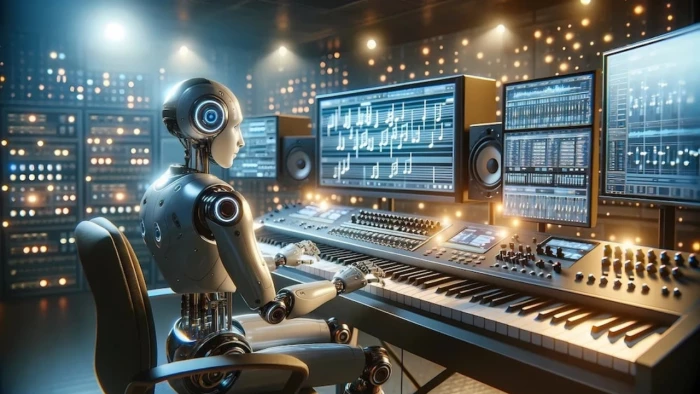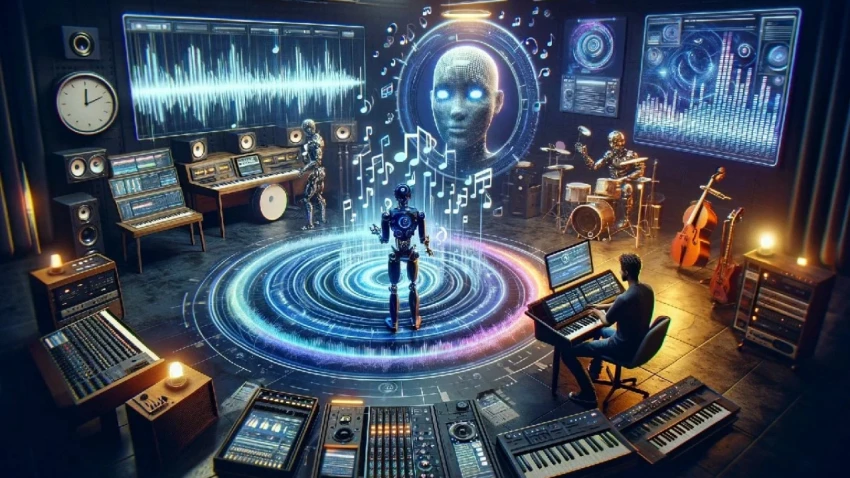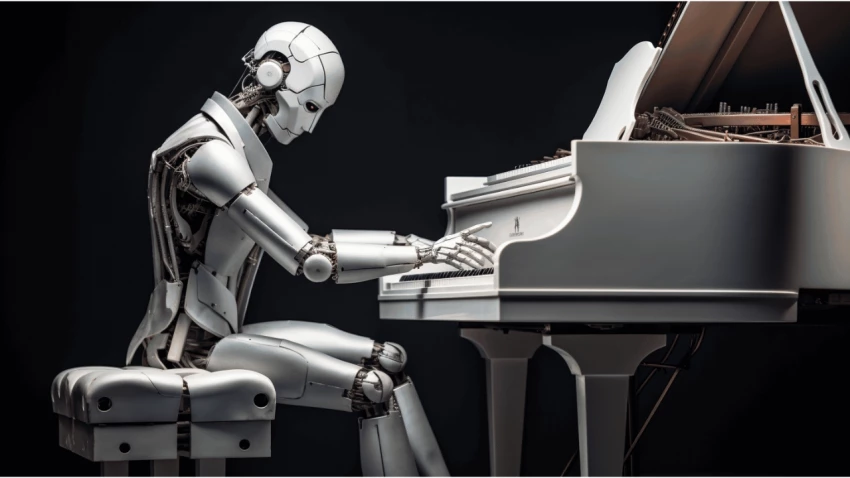

Music has always been a reflection of human emotion and culture. From the earliest rhythms carved on stone drums to complex symphonies that fill grand concert halls, we’ve used sound to express what words cannot. But what happens when machines begin to compose alongside us? Artificial intelligence is not just analyzing music anymore; it’s creating it. This shift is raising deep questions about creativity, authenticity, and the future of music itself.
When we hear that AI can compose music, the first question is always the same: Is it truly creative?
AI models like OpenAI’s MuseNet, Google’s Magenta, and AIVA (Artificial Intelligence Virtual Artist) are already composing full-length pieces. These systems are trained on massive datasets of classical symphonies, jazz improvisations, or even EDM tracks. By learning patterns of rhythm, harmony, and melody, they generate original works that sound strikingly human.
Yet, creativity is not just pattern recognition. It involves intuition, context, and emotion. While AI can mimic the structure of a Beethoven sonata, it doesn’t “feel” the longing or triumph behind the notes. Instead, it reflects the data it has absorbed, reassembling it in new ways.
So the question becomes: is creativity the ability to feel, or simply the ability to make something new?

Far from replacing composers, AI is becoming a collaborative tool. Artists are using it in three main ways:
This isn’t music written by machines alone; it’s music written with them.
A common fear is that AI will replace composers and performers. But history tells us a different story. When the synthesizer was invented in the 1960s, many thought it would destroy orchestras. Instead, it created new genres like electronic music and shaped pop culture for decades.
AI is likely to follow a similar path. Rather than eliminating musicians, it expands their creative toolkit. A composer might use AI to explore hundreds of variations on a theme in seconds, then refine the one that resonates emotionally. The human role becomes curation, interpretation, and emotional storytelling, things that algorithms still struggle to replicate.
The legal side of AI music is messy. If an AI composes a song, who owns it? The developer of the algorithm? The musician who used it? Or no one at all?
In 2023, the U.S. Copyright Office ruled that AI-generated works without human involvement are not protected by copyright. However, if a human meaningfully edits or directs the AI’s output, that contribution can be copyrighted. This creates a gray zone where collaboration is key: the more human influence, the stronger the claim of ownership.
As AI tools spread, we may see new licensing models emerge, similar to how stock photography or sampling works today.
One of the strongest arguments against AI music is emotional depth. A breakup song written by an algorithm may sound technically correct, but does it capture heartbreak?
Interestingly, research suggests that listeners often cannot distinguish between human and AI-composed music. In blind tests conducted by AIVA, people rated some AI symphonies as equally moving as human ones. This raises a challenging idea: maybe emotion doesn’t come from the composer, but from the listener.
If that’s true, then AI doesn’t need to feel sadness to create a sad song; it just needs to replicate the musical patterns that humans associate with sadness. We provide the interpretation.

What excites me most about AI music is not imitation, but innovation. Imagine a symphony written jointly by a human composer and an AI trained on bird songs, whale calls, and alien-like computer sounds. This could push music beyond traditional scales, time signatures, and genres.
Already, experimental artists are blending AI with human improvisation to create performances that evolve unpredictably in real time. These collaborations point toward a future where music is less about machine versus human and more about the co-creation of something neither could achieve alone.
Music has always evolved alongside technology: the piano, the phonograph, the synthesizer, the digital sampler. AI is simply the next step.
Will machines ever “feel” music the way we do? Maybe not. But they don’t need to. What matters is how we use them. AI can’t replace the human soul in music, but it can expand the canvas we paint on.
Perhaps the real question isn’t whether AI can compose like us, but whether we can learn to compose with it. That partnership might create a new language of music, one where creativity is no longer limited by human imagination alone.
Be the first to post comment!